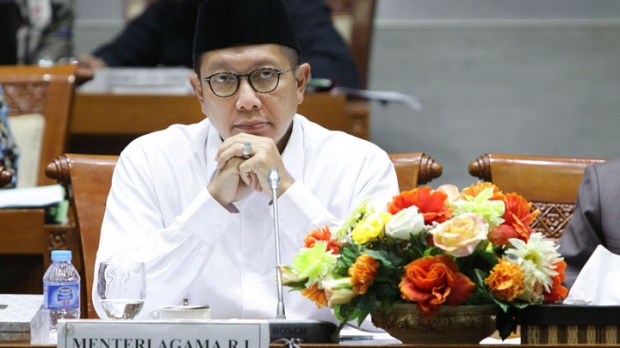
TEMPO.CO, Jakarta - Religious Affairs Minister Lukman Hakim Saifuddin must immediately withdraw the list of ministry-recommended Islamic preachers. The list offers no benefits and only serves to spark controversy. The wrong remedy also shows the governments excessive interference in religion.
Lukmans argument, that the list is meant to make it easier for people to find Islamic preachers, feels contrived. In this digital era, it should not be difficult to find preachers, even religious scholars in isolated regions. It is in fact easy for people to communicate with preachers in their everyday lives because the people have always had a close relationship with ulamas.
The Islamic preachers list released by the religious affairs ministry also seems perfunctory: a preacher on the list has already passed away and former corruption convict Said Agil Husin Al Munawar is also included. The former religious affairs minister was sentenced to five years in prison after he was found guilty of embezzling Haj pilgrimage funds during his tenure.
Said Agils inclusion shows that the ministry was inconsistent in applying its own criteria. There were three criteria for selecting preachers: competent in their knowledge of religion, good reputation and a strong commitment to the nation. One finds it difficult to agree that Said Agil has a good reputation considering he was clearly found guilty by the court.
The lists release has confused the public. It gives the impression that there are only 200 ulamas in Indonesia fit to preach Islam, when there are numerous individuals not on the government list with a deep understanding of religion and integrity.
The government should have stopped at setting the criteria for Islamic preachers seen as fit to give sermons. The role of the government should be limited to dissuading religious organizations from giving preachers the opportunity to spread radical teachings or cause public unrest. The state must not interfere too much in religious life.
This is why the religious affairs ministers stubborn refusal to withdraw the list is regrettable. Although the policy has been condemned, he insists on only revising or adding to the list. Minister Lukman must not repeat the mistake made by his father Saifuddin Zuhri, who banned 167 books from Islamic boarding schools during his tenure as religious affairs minister in the New Order era.
President Joko Widodo needs to step in and correct the counterproductive policy. It is urgent because the religious affairs ministers move also violates the freedom of religion and worship guaranteed by the constitution. Furthermore, freedom of religious expression is regulated under the human rights law.
The International Covenant on Civil and Political Rights, which Indonesia has ratified, reinforces this freedom. Freedom to perform religious activities, including teaching religious values, are only subjected to restrictions as specified by the law or for the sake of public order. The state can only intervene if an activity or a religious teaching violates the law, disrupt public order, or encroaches on the rights of others.
The religious affairs minister should have understood this universal principle. The government can push law enforcers to take action against Islamic preachers who break the law, but the ministry should not have wasted its time selecting Islamic preacherssomething that is best left to ulamas themselves.























